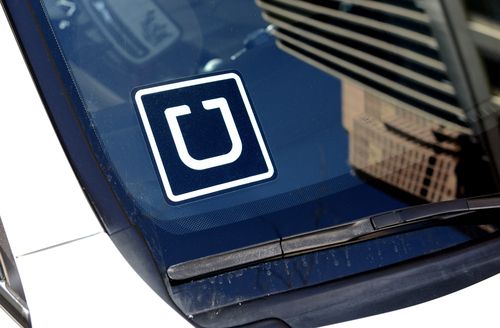Top Class Actions’s website and social media posts use affiliate links. If you make a purchase using such links, we may receive a commission, but it will not result in any additional charges to you. Please review our Affiliate Link Disclosure for more information.

U.S. District Judge Jed S. Rakoff wrote in his March 31 decision that plaintiff Spencer Meyer has made a plausible case that Uber has set up a horizontal conspiracy by getting its drivers to agree to not compete against each other by agreeing to the same price structure created by Uber’s pricing algorithm.
Meyer filed the Uber price-fixing class action lawsuit on Dec. 16, 2015 and an amended complaint in late January, alleging that Kalanick “had orchestrated and facilitated an illegal price-fixing conspiracy,” in violation of federal and New York State antitrust laws.
Meyer explained in his Uber class action lawsuit that that Uber advertises itself as a technological company not a transportation company. Uber customers can find a private driver through its smartphone app to pick them up and take them to their desired location.
However, even though the drivers are not considered Uber employees, the fare is set by Uber and drivers cannot compete with each other by offering lower prices for the fare, and Uber customers cannot negotiate for lower fares with the drivers because the prices are set by Uber.
“Drivers charge the fares set by the Uber algorithm,” Meyer explained in his Uber price-fixing class action lawsuit. “Those fares surge at times to extraordinary levels, which are uniformly charged by drivers using the Uber app.”
In addition Meyer explained that “Uber takes a cut of those price-fixed fares. Kalanick’s business plan thus generates profit through price fixing.”
Besides being the Uber CEO, Kalanick also works as a driver for Uber, the Uber class action lawsuit explains: “in addition to charging fares to Uber riders, Kalanick charged prices he ultimately controlled. Every other driver using the Uber app — Kalanick’s direct competitors — agreed to use the identical pricing algorithm.”
Therefore, “through the Uber app, Kalanick’s direct competitors thus empowered him to set his and their fares,” Meyer adds, calling the alleged price fixing conspiracy an “open secret.”
The drivers consent to the alleged price fixing, Meyer explains, “because they could yield supra competitive prices through their collective action.”
Kalanick argued against the price fixing class action lawsuit on the grounds that when drivers agree to Uber’s Driver Terms that it does not amount to a horizontal agreement among drivers, but it is a vertical agreement between the drivers and Uber. Each driver decided that it was in his or her best interest to make a “vertical agreement with Uber,” Kalanick explained.
However, Judge Rakoff said that he was “not persuaded to dismiss plaintiff’s horizontal conspiracy claim.”
Judge Rakoff compared the allegations in the Uber class action lawsuit it to a decision by the Supreme Court in 1939 that “held that competing movie distributors had unlawfully restrained trade when they each agreed to a theater operator’s terms, including price restrictions.”
The New York federal judge also cited a more recent decision by the Second Circuit Court of Appeals from 2015 about an antitrust lawsuit against Apple, Inc., in which the appellate court described such arrangements as “‘hub-and-spoke’ conspiracies in which an entity at one level of the market structure, the ‘hub,’ coordinates an agreement among competitors at a different level, the ‘spokes.'”
In such a relationship, the vertical agreement amounts to “a horizontal agreement among the spokes to adhere to the [hub’s] terms, often because the spokes would not have gone along with [the vertical agreements] except on the understanding that the other [spokes] were agreeing to the same thing,” the Second Circuit explained.
Judge Rakoff says that the agreement between Uber and its drivers is similar: “In this case, plaintiff has alleged that drivers agree with Uber to charge certain fares with the clear understanding that all other Uber drivers are agreeing to charge the same fares. These agreements are organized and facilitated by defendant Kalanick, who is at least an occasional Uber driver, is also a member of the horizontal conspiracy.”
The New York federal judge says that it is on these grounds that “the court finds that plaintiffs have plausibly alleged a conspiracy in which drivers sign up for Uber precisely ‘on the understanding that the other [drivers] were agreeing to the same pricing algorithm, and in which drivers’ agreements with Uber would ‘be against their own interest were they acting independently.'”
Following the decision, Uber released a statement saying that it disagreed with the ruling, adding that “In just five years since its founding, Uber has increased competition, lowered prices and improved services.”
Meyer is represented by Brian Marc Feldman, Edwin Michael Larkin III and Jeffrey A. Wadsworth of Harter Secrest & Emery LLP and Andrew Arthur Schmidt of Andrew Schmidt Law PLLC.
Kalanick is represented by Peter M. Skinner, Karen L. Dunn, Ryan Young Park and William A. Isaacson of Boies Schiller & Flexner LLP.
The Uber Antitrust Class Action Lawsuit is Spencer Meyer v. Travis Kalanick, Case No. 1:15-cv-09796, in the U.S. District Court for the Southern District of New York.
UPDATE: On May 26, 2016, Uber asked to intervene in a price-fixing class action lawsuit against CEO Travis Kalanick, arguing that the plaintiff cannot bypass Uber’s arbitration agreement by suing the CEO instead of the company.
UPDATE 2: On June 7, 2016, Uber’s CEO told a New York federal court judge that a rider’s proposed class action lawsuit alleging price-fixing should be forced into arbitration.
UPDATE 3: On July 14, 2016, a private investigation firm disclosed to a New York federal judge that one of it’s unlicensed detectives lied and may have illegally recorded telephone conversations in order to uncover information about the case’s lead plaintiff.
UPDATE 4: On July 29, 2016, Uber formally denied the allegations of price-fixing made in a recent class action lawsuit and is now counterclaiming for a declaratory judgment.
UPDATE 5: On Nov. 29, 2016, an Uber rider is urging the Second Circuit Appeals Court to affirm a New York federal judge’s ruling that the ride-sharing company cannot force customers to arbitrate a putative antitrust class action lawsuit.
ATTORNEY ADVERTISING
Top Class Actions is a Proud Member of the American Bar Association
LEGAL INFORMATION IS NOT LEGAL ADVICE
Top Class Actions Legal Statement
©2008 – 2024 Top Class Actions® LLC
Various Trademarks held by their respective owners
This website is not intended for viewing or usage by European Union citizens.















5 thoughts onUber CEO Can’t Escape Price-Fixing Class Action Lawsuit
UPDATE 5: On Nov. 29, 2016, an Uber rider is urging the Second Circuit Appeals Court to affirm a New York federal judge’s ruling that the ride-sharing company cannot force customers to arbitrate a putative antitrust class action lawsuit.
UPDATE 4: On July 29, 2016, Uber formally denied the allegations of price-fixing made in a recent class action lawsuit and is now counterclaiming for a declaratory judgment.
UPDATE 3: On July 14, 2016, a private investigation firm disclosed to a New York federal judge that one of it’s unlicensed detectives lied and may have illegally recorded telephone conversations in order to uncover information about the case’s lead plaintiff.
UPDATE 2: On June 7, 2016, Uber’s CEO told a New York federal court judge that a rider’s proposed class action lawsuit alleging price-fixing should be forced into arbitration.
UPDATE: On May 26, 2016, Uber asked to intervene in a price-fixing class action lawsuit against CEO Travis Kalanick, arguing that the plaintiff cannot bypass Uber’s arbitration agreement by suing the CEO instead of the company.